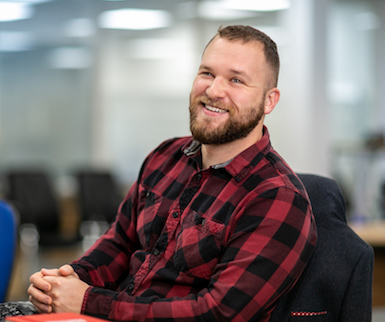What do a paramedic, a combat soldier, an IT worker and person running from a lion on the Kalahari all have in common? Sustained stress can cause all of them to suffer the same chronic, detrimental physiological and neurological changes.
We all know someone in our industry that is struggling to balance their role, home life and health, or worse has departed due to burnout. Conversations around mental health concerns are increasingly visible in the media and high-profile individuals such as the royal princes, William and Harry, are increasingly speaking up. However, we consistently see mental health statistics that are on the rise.
The mental health crisis
NHS national mental health surveys suggest that the rate of ‘common mental health disorders’ has risen by nearly 25% between 2007and 2014. Statistically speaking either we or a close friend or family member will experience a diagnosable condition such as suicidal thoughts at some point within the next year.
We are faced with an increasingly pressured workforce with a work-life balance that, according to the OECD Better Life index, ranks 29th out of 38 OECD member states. When viewed against the savage cuts to mental health services and supporting social care (62% of trusts have reported a lower income than in 2011) some of the causes behind the largely negative trends are obvious.
The case for workplace-centric mental health protection
Mental health services are being gutted, our working patterns are increasingly unhealthy and the incidence of mental health issues amongst our friends, family and colleagues is on the rise. So what can we do?
We spend a vast amount of time at work and apart from personal matters such as family, an extraordinary number of the causes and exacerbating factors behind mental health conditions including, depression, AAD and even conditions such as PTSD can be found in the workplace. Think about where we started above, the fight-or-flight response that the office can now trigger multiple times a day is the same one that, in pre-history, used to activate once a week whilst hunting food. All stress is stress, and chronically, stress kills.
We invest large amounts of money and effort in hiring and retaining the right talent, and inevitably enrich our employees with vital, and hard to replace organisational memory and domain knowledge. Wouldn’t it be great if we could do something to help protect our people as well?
#EndTheStigma
This is one of the reasons why I’ll be giving a talk at BSides Dublin on mental health in the cyber security industry. I hope to provide simple steps we, our teams and our organisations can take to help everyone live and work safer, healthier and happier.
Cybersec roles, particularly on the risk management and red/blue team sides have an adversarial and reactive, high-pressure nature that’s at high risk of breaking people down. I’ll be using my own personal experiences within mental health, as well as my time as a Search and Rescue medic and Ambulance Responder to frame the mental health risks we face. Using some of the same tools and processes that help our Emergency Services personnel remain healthy, I’ll suggest a number of techniques and systems that might help us too.
I’m incredibly grateful to BSides Dublin for giving me the chance to speak on this important topic. As security professionals, we spend so much time concentrating on tools and processes to help protect our businesses, that we often miss the fact that we’re the ones at risk.
A strong support network at Bsides Dublin – The chill out area
 Memset this year are CSF sponsors of Bsides Dublin and will also be sponsoring the chill out and mental health area at the conference. There will be sofas, snacks and drinks dotted around and a load of board games to encourage people to sit, chat and make new friends.
Memset this year are CSF sponsors of Bsides Dublin and will also be sponsoring the chill out and mental health area at the conference. There will be sofas, snacks and drinks dotted around and a load of board games to encourage people to sit, chat and make new friends.
One of the most effective defences against mental health issues, particularly in the early stages, is a strong support network of people you trust. So grab a sofa and a beer, and make some new friends over a game of Pandemic or War on Terror.
We are also being supported by volunteers from the local Dublin Samaritans branch. They’ll be on hand to chat and talk about the fantastic work that they do.
 You can find more information about Bsides Dublin here and if you’re attending you can catch Tom Owen’s talk Thriving in Cybersec- Creating Resilience in the Fleshy Orchestration Layer at 10:15 in Track Two.
You can find more information about Bsides Dublin here and if you’re attending you can catch Tom Owen’s talk Thriving in Cybersec- Creating Resilience in the Fleshy Orchestration Layer at 10:15 in Track Two.
Tom is Memset’s Head of Security and Business Services and an ex-Search and Rescue Medic with Surrey Search and Rescue. Between work, family and volunteer roles, he is intimately familiar with the impacts that mental health problems can have on those he is responsible for.



